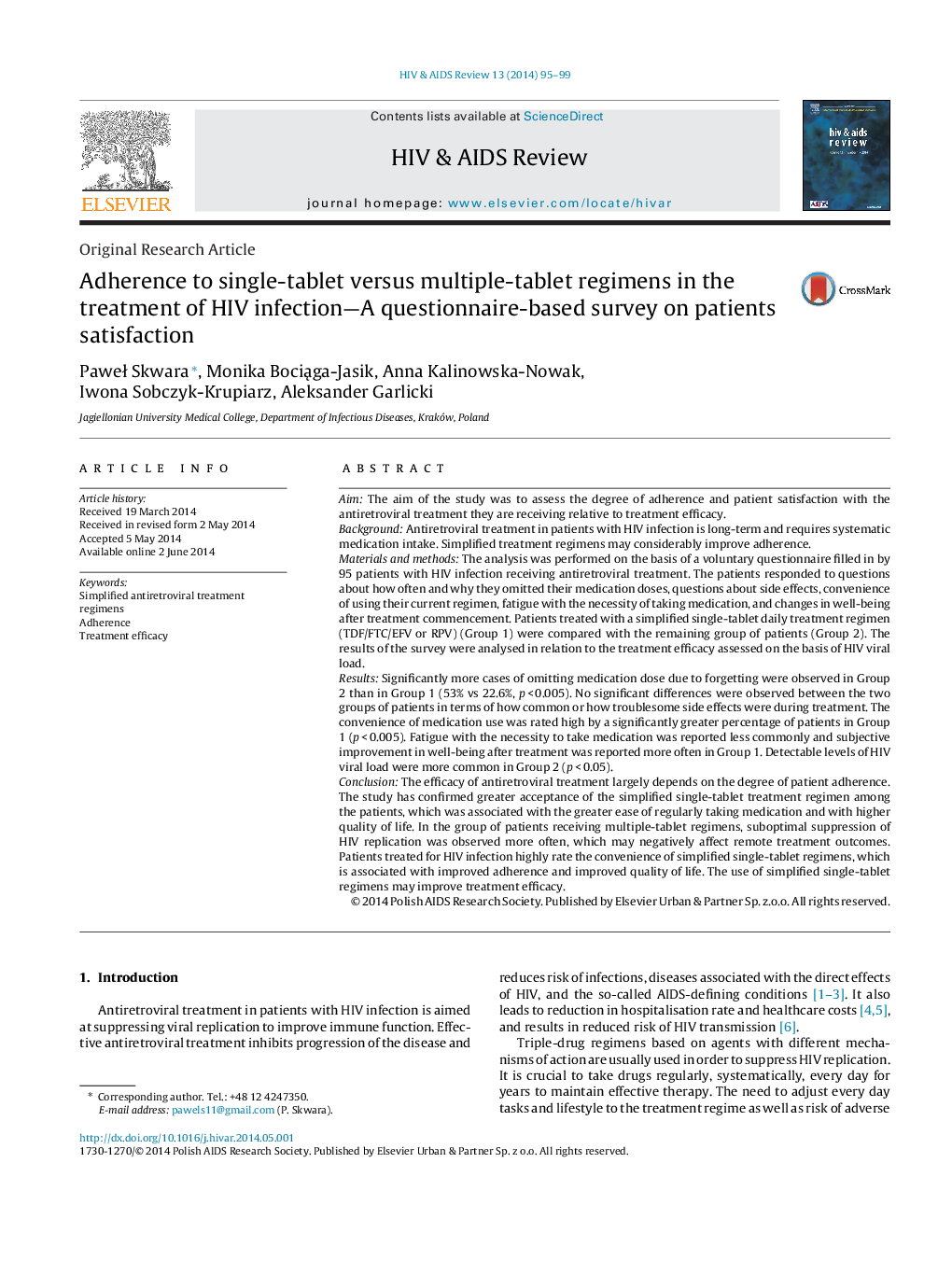| Article ID | Journal | Published Year | Pages | File Type |
|---|---|---|---|---|
| 3332313 | HIV & AIDS Review | 2014 | 5 Pages |
AimThe aim of the study was to assess the degree of adherence and patient satisfaction with the antiretroviral treatment they are receiving relative to treatment efficacy.BackgroundAntiretroviral treatment in patients with HIV infection is long-term and requires systematic medication intake. Simplified treatment regimens may considerably improve adherence.Materials and methodsThe analysis was performed on the basis of a voluntary questionnaire filled in by 95 patients with HIV infection receiving antiretroviral treatment. The patients responded to questions about how often and why they omitted their medication doses, questions about side effects, convenience of using their current regimen, fatigue with the necessity of taking medication, and changes in well-being after treatment commencement. Patients treated with a simplified single-tablet daily treatment regimen (TDF/FTC/EFV or RPV) (Group 1) were compared with the remaining group of patients (Group 2). The results of the survey were analysed in relation to the treatment efficacy assessed on the basis of HIV viral load.ResultsSignificantly more cases of omitting medication dose due to forgetting were observed in Group 2 than in Group 1 (53% vs 22.6%, p < 0.005). No significant differences were observed between the two groups of patients in terms of how common or how troublesome side effects were during treatment. The convenience of medication use was rated high by a significantly greater percentage of patients in Group 1 (p < 0.005). Fatigue with the necessity to take medication was reported less commonly and subjective improvement in well-being after treatment was reported more often in Group 1. Detectable levels of HIV viral load were more common in Group 2 (p < 0.05).ConclusionThe efficacy of antiretroviral treatment largely depends on the degree of patient adherence. The study has confirmed greater acceptance of the simplified single-tablet treatment regimen among the patients, which was associated with the greater ease of regularly taking medication and with higher quality of life. In the group of patients receiving multiple-tablet regimens, suboptimal suppression of HIV replication was observed more often, which may negatively affect remote treatment outcomes. Patients treated for HIV infection highly rate the convenience of simplified single-tablet regimens, which is associated with improved adherence and improved quality of life. The use of simplified single-tablet regimens may improve treatment efficacy.
